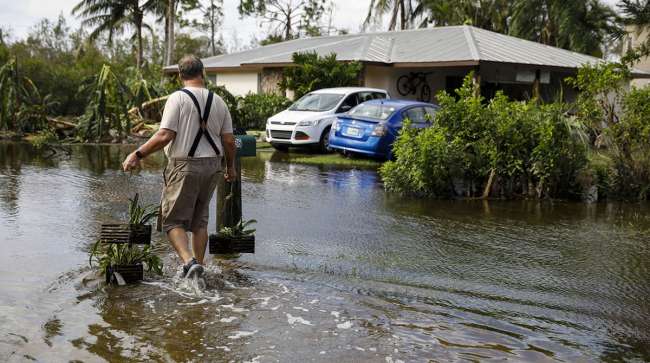Senior Reporter
Congress Passes Disaster Aid Bill Amid Calls for Resilience

[Stay on top of transportation news: Get TTNews in your inbox.]
Legislation designed to expedite emergency recovery aid recently advanced to the president’s desk amid renewed calls for enhancing infrastructure resilience.
The Small Project Efficient and Effective Disaster (SPEED) Recovery Act was easily cleared by House lawmakers for President Joe Biden’s approval on Sept. 29. Enactment of this bill is expected.
The legislation, sponsored by Rep. Sam Graves (R-Mo.), aims to expedite disaster recovery efforts, primarily for rural communities. The bill, which gained bipartisan backing in the House and Senate, would look to streamline the recovery process as well as minimize administrative procedures.
Specifically, it would increase to $1 million the small project qualifying threshold under the Robert T. Stafford Disaster Relief and Emergency Assistance Act. The bill also tasks the Department of Homeland Security’s Inspector General to audit, and report to Congress, on whether waste and abuse has been determined as a result of the threshold’s change.

Graves
“The SPEED Recovery Act will help cut the red tape that many communities have to deal with to secure disaster assistance. This legislation is especially helpful for small and rural communities that simply do not have the same types of resources as large and urban areas to navigate the bureaucracy,” Graves said Sept. 29. He is the top Republican on the Transportation and Infrastructure Committee.
“This bill,” Graves continued, “will allow smaller recovery projects to move forward quickly, help disaster victims begin to get back on their feet sooner rather than later, and allow FEMA to better focus its resources when larger disasters strike.”
The bill’s passage in Congress came as policymakers are renewing calls for expediting disaster relief aid, as well as promoting severe-weather resilience across freight and commuter corridors.
Recently enacted federal government funding legislation included billions of dollars for post-hurricane relief efforts. Transportation leaders on Capitol Hill are pointing to ongoing efforts meant to address climate change’s impact on mobility networks.
Congressional Democrats representing Florida, for instance, raised the matter with the president soon after Hurricane Ian devastated parts of the Sunshine State. “Every storm provides new information and urgency to inform rebuilding in ways that will reduce future losses of life and property,” they wrote to Biden on Oct. 3. “We can already see that the early adoption of resilience-based land use decisions and building codes helped reduce losses. It will be critical to apply the latest science, codes and standards to decisions about how to rebuild, and to deploy funding quickly to accelerate mitigation and a resilient recovery from this storm.”
The letter was signed by Reps. Kathy Castor, Debbie Wasserman Schultz, Frederica Wilson, Val Demings, Sheila Cherfilus-McCormick, Al Lawson, Stephanie Murphy, Lois Frankel and Darren Soto.

When tragedy strikes, heroes fight back. Transport Topics' Trucking's Frontline Heroes is back and looking for this year's trucking hero. Do you know someone who fearlessly faced tragedy in order to help others? Tell us about them here.
Transportation committee Chairman Peter DeFazio (D-Ore.) recently reminded colleagues of his caucus’ stance on climate change resilience. As he put it, “We are finally seeing Congress take action on climate change. For transportation, this means supporting greener materials in highway construction and the adoption of sustainable aviation fuels.”
North Carolina Gov. Roy Cooper (D), detailing hurricane recovery efforts in a recent television news interview, said his state “has had a front row seat when it comes to the effects of climate change, and we are making sure that we become a clean energy safe haven and that we are paying attention to resiliency.”
“We know that we’re going to be working on updating our grid, making sure that we are more resilient into the future,” added the governor.
Climate change is a central theme for the Biden administration. Transportation Secretary Pete Buttigieg is among members of the president’s Cabinet promoting infrastructure resilience provisions in the new $1 trillion infrastructure law. “We are faced with a moment that is calling on us to address some of the issues that so many of our communities, especially in the industrial Midwest, have faced,” the secretary said in Ohio last month, pointing to “new construction materials that help in that fight against climate change.”
The concept of rebuilding infrastructure capable of withstanding the impact of severe weather events also has been endorsed by prominent transportation stakeholders.

